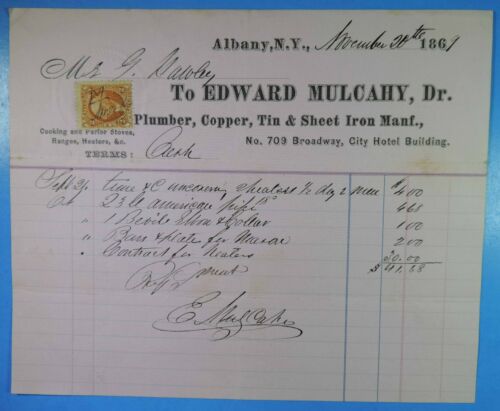
Do your research before you hire a ductwork contractor. Look for references, reviews from customers, and any licensing. An unlicensed contractor may not be up to code and can leave you open to liability. It is also important to confirm the contractor has the right experience.
How to choose a ductwork contractor
An experienced contractor will be able to provide a detailed understanding of duct system design. This will ensure efficient performance and consistent airflow throughout your house. A good contractor can also advise you on the right number of vents to put in. Also, it is important to evaluate the contractor's work history, skills, and experience. It is important to evaluate the contractor's work within the first few days. This will help to determine whether the contractor will do a great job.
It is important to know the requirements for their license and insurance before you hire a contractor. Online forums are a great way to verify their credentials and experience. You should also note any repairs that have been made to your system. Also, note any concerns that you may have about your current system, like rooms that are too hot or cold.

Ductwork design
Proper ductwork planning is an essential step in HVAC system installation. It will determine the optimal size of the HVAC system for a building and will depend on several factors, including square footage, capacity of the HVAC units, air flow requirements for each room, and duct size friction loss. This calculation used to be done manually with pen and paper. However, modern software can now use these factors to determine the correct duct size and layout of a building.
The right duct design is vital for energy efficiency. An inefficient or leaky duct can cost the average homeowner up to twenty percent more in energy bills than necessary. A good ductwork design will reduce heat loss and promote balanced airflow. This will result in lower energy consumption because it provides a clear pathway for supply and returns airflow.
Cleaning of ductwork
To clean ductwork safely, a qualified contractor should use special equipment. HEPA-filtered equipment should also be used in order to prevent harmful particles from getting into living areas. All ductwork contractors must adhere to the industry's standards.
Ductwork cleaning could help you if you have asthma or allergies. You should also be concerned if mold grows in your ducts. This could indicate that there is a problem with the system's moisture or a leak. Contact a ductwork contractor immediately in these cases.

Ductwork cleaning is a complicated process. There are many techniques to clean ductwork. The various methods for cleaning ducts include hand, power brushing, and compressed air tools. If needed, duct cleaning contractors can repair damaged work.
FAQ
What is a Service Agreement?
A service agreement template is a document which contains all details about a specific service agreement. This template can be used to create a standard service agreement.
Service agreements are vital because they determine the relationship between two individuals.
They aid in understanding the needs and expectations of both parties. They help both sides understand each other's expectations and needs before signing the deal.
When do I need to pay the service/contractor for it?
The type of service provided will determine the payment schedule. A contractor might hire to install a roof. You would usually pay when the work is complete. However, when you purchase a product from a seller, such as a kitchen range oven, you may only pay once you have received and tested it.
How much does it cost to apply for building permission?
It varies depending on the state and the complexity of your proposal. It could also depend on whether or not you are applying to permission to build on your existing home. The process of applying can take many months so you should be ready to wait until the whole thing is done.
Who is responsible for paying for the service
The SCA identifies who is responsible for paying the service. If the service provider is not paid in full, it may have grounds to claim compensation through the courts.
Who creates a Service Agreement
The service agreement between your customer and you defines the way you will provide them services. It defines the customer's responsibilities. It also describes what you will do for them. And when they have pay you.
Additionally, the service agreement confirms whether additional fees will apply to extra services.
All terms and condition of the service agreement should be stated. This includes payment methods and delivery times.
You can use this template to cover every aspect of the agreement.
Can I cancel my contract at any point?
Yes, but you must do it within 14 days after signing the contract. Your contract can be terminated by providing written notice no later than 7 working days before the specified end date. If you do not give enough notice, the contractor may still owe you money for work that has been completed.
Statistics
- (d) Contractor disputes related to compliance with its obligation shall be handled according to the rules, regulations, and relevant orders of the Secretary of Labor (see 41 CFR60-1.1). (acquisition.gov)
- Depending on the client's trustworthiness and financial stability, a deposit is usually 10 to 50% of the total contract amount. (lawdepot.com)
- (ii) Name, address, and telephone number of each proposed first-tier subcontractor with a proposed subcontract estimated at $10 million or more. (acquisition.gov)
- (1) Except as provided in paragraphs (a)(4) and (a)(8) of this section, if the estimated amount of the contract or subcontract is $10 million or more, the contracting officer shall request clearance from the appropriate OFCCP regional office before- (acquisition.gov)
- Don't take their anger personally, they are mad about the situation 99% of the time. (activatemylicense.com)
External Links
How To
What should a service contract include?
Any business relationship requires a Service Agreement. It defines what you want from each other, and how you will get it. The SA also specifies when and where you expect each party to fulfill its contractual obligations.
A successful SA must include these key elements:
-
The scope of work and services required by both parties.
-
Information about payment terms, including the start and end dates for delivery of goods/services.
-
The project price must be agreed.
-
Any additional costs like VAT etc.
-
Whether there is anything else that needs to be discussed.
-
Who will be held responsible for any problems that may arise on the job?
-
How to resolve disputes
-
What happens if one of the parties breaches the contract?
-
What happens in case of dispute.
-
When does the contract come into effect?
-
What happens if a party doesn't perform.
-
How long do you have to pay invoices?
-
Who pays for travel expenses?
-
Where the money comes.
-
What happens if a client changes his mind?
-
What happens if the supplier isn't there?
-
Who has access to the site during construction?
-
What happens when the customer cancels a project?
-
What happens if the product fails?
-
What happens when the manufacturer refuses supply?
-
What happens if the equipment is damaged?
-
What happens when the project takes longer to complete?
-
What happens if you don't complete the work within the set timeframe?
-
What happens if the final product isn't up to expectations?
-
What happens if the cost overruns.
-
What happens when the materials are not delivered in time?
-
What happens if your material arrives damaged?
-
What happens if products do not meet the standards?
-
What happens if the job has to be canceled?
-
What happens if the business goes under?